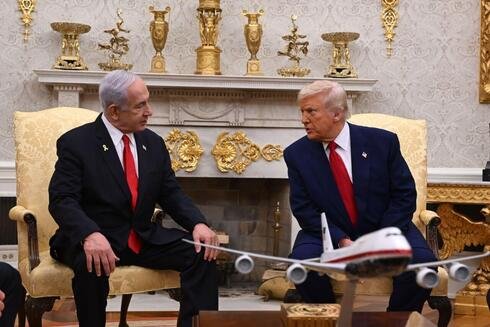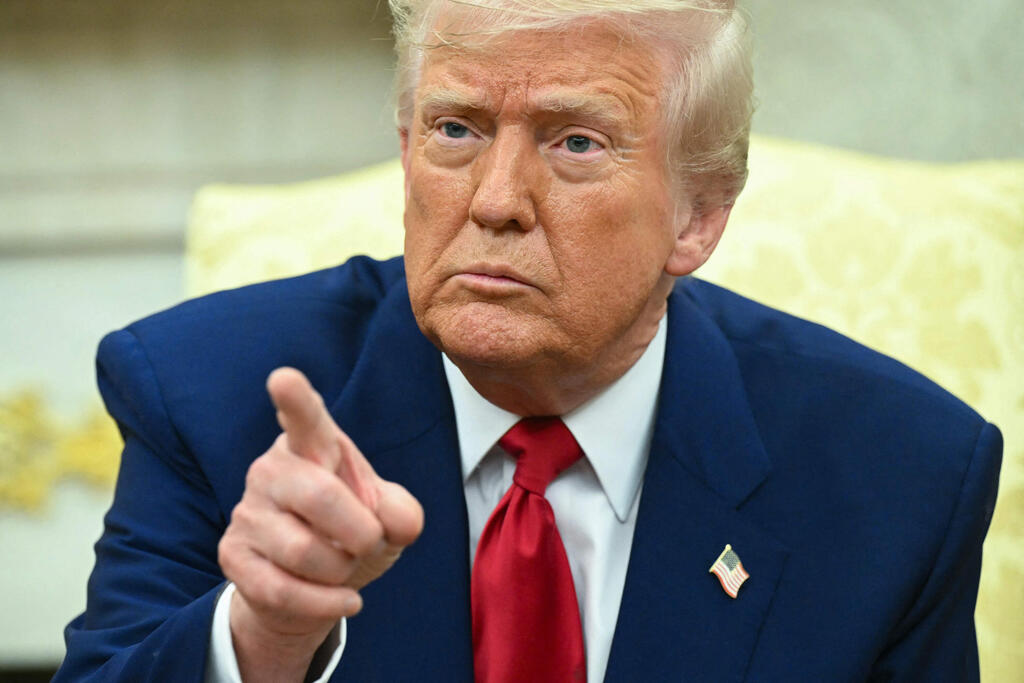Netanyahu was not the only one who was surprise by Trump’s words. Some of the American officials were not aware that the president would announce the direct talks, with Netanyahu sitting by his side.
Israeli officials had said the main purpose of Netanyahu’s hurried trip to Washington was to discuss the tariffs imposed on Israeli imports. “We are aware of contact between the United States and Iran and are not concerned,” they said. But the White House prepared an unpleasant surprise for Netanyahu, and not just by revealing that discussion were already underway; that was known in Jerusalem.
Trump announces direct negotiations with Iran to begin
(Reuters)
However, the Israeli delegation had not been informed ahead of the visit that the U.S.-Iran negotiations would become public, presidential-level, of the utmost importance, and described as “direct”—all while Netanyahu was in the Oval Office.
Israeli officials have found some consolation in one outcome: President Trump’s explicit threat against Iran if negotiations were to fail, made in response to a question by journalist Barak Ravid. Trump warned that Iran would be in “great danger.” Tehran is known to resist negotiating under the pressure of deadlines and military threats. The president made clear that this is exactly the approach being taken.
The Israelis believed that the Iranians – who consider themselves masters in the art of negotiations – often misunderstand the other side, and therefore the negotiations are likely to fail. And when that happens Trump would realize that only after a military strike will talks with Iran succeed.
Trump did not mean to humiliate the PM
Nearly all questions asked during the long press opportunity in the Oval Office, were directed at Trump and dealt with the tariffs imposed on imports to the United States. The Middle East was not the focus of media interest.
Netanyahu then promised to end the trade deficit that exists in Israel’s favor, although he did not provide any details on how that would be achieved.
The positive news for Netanyahu that had come out of the White House was the president’s full support for Israel’s offensive on Gaza. He even complimented Netanyahu for his strong leadership and his effort to get the hostages released.
While under the cloud of Qatargate, with close advisors of the prime minister being investigated for allegedly working for Qatar while in the service of the prime minister, he briefed the president about the progress made in discussions with countries that were willing to accept Palestinians who would leave Gaza willingly.
There are other options, Trump said before he described the cruelty of Hamas and the conditions that the hostages in Gaza were enduring. Trump’s apparent commitment to the fate of the hostages and the personal commitment of his envoy Steve Witkoff are a significant ray of sunshine in the bilateral relations and perhaps in general.
After years of claiming that he alone could educate the world about the threat posed by Iran and could prevent it, Trump’s claim is now being put to the test.








